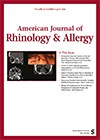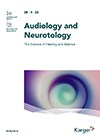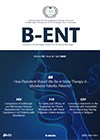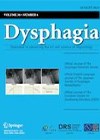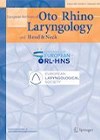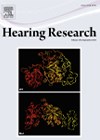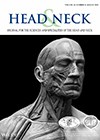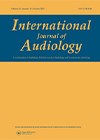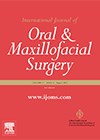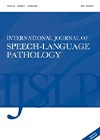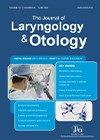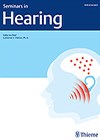
Journal Reviews
A new treatment for chronic rhinitis
The review paper looks at the efficacy of cryoablation of the posterior nasal nerve (PNN) to treat chronic rhinitis, an increasingly popular method of treating a highly prevalent and morbidity-inducing disease. Five studies were included in the meta-analysis, all dating...
Can tympanometry be used to diagnose Ménière’s disease?
The authors proposed multifrequency tympanometry (MFT) as an in-office test which may be able to diagnose Ménière’s disease (MD) that is quicker and more cost-effective than other methods. MFT measures the acoustic admittance of the middle ear and external ear...
Cervical tracheal reconstruction
This Chinese animal study looked at the use of a xenogenic acellular dermal matrix for tracheal reconstruction. The authors took a total of 22 rabbits and divided them into an experimental (repair with xenogenic acellular dermal matrix) and control group...
How well do different assessments of swallowing correlate with one another?
Swallowing (dys)function may be assessed by three key measures: 1. instrumental swallowing techniques such as the modified barium swallow (MBS) or videofluoroscopy; 2. functional measures of diet texture that patients can eat comfortably (usually rated by the clinician); and 3....
Early vs late activation of cochlear implant device
Device activation after cochlear implant surgery was typically performed after wound healing, and varies anytime from three to four weeks after surgery. Nowadays, activation is performed as early as two to three days after surgery. The authors evaluated the effect...
What is in the Fountain of Youth?
Does the auditory system have to age? Can we become more like turtles or jellyfish and keep our internals running without degradation? This essay considers the theoretical underpinnings of biological processes in the cochlear, in particular the role of the...
How long after head and neck cancer diagnosis do patients need opioids?
With the advances in the management of head and neck cancer (HNC), patients tend to survive longer after their diagnosis. These people face the burden of chronic pain management which is strongly associated with HNC. A HNC team in Portland...
Provision of hearing support to people with dementia in care homes
The study suggests care home staff training in hearing care for residents with dementia is often not available or not considered a priority. Resources, facilities, training, staff capacity, capability and support vary widely. Care home provision also varies between social...
Painful temporomandibular joints
This paper is a meta-analysis of randomised controlled trials comparing arthrocentesis with conservative management in painful and restricted mouth opening temporomandibular joint symptoms. Temporomandibular joint dysfunction comprises a spectrum of disorders commonly involving facial pain and loss of oral function...
Therapeutic alliance: more than the ‘nice person’ effect
Therapeutic relationship is considered a key component of many healthcare interventions, including speech and language therapy. Yet definitions and descriptions of what this concept comprises are ambiguous and sparse. This scoping review used the Joanna Briggs Institute guidelines to guide...
A time-saving method for faster cancer diagnosis and treatment
One of the main impediments in achieving UK Government cancer diagnosis and treatment targets is lack of diagnostic capacity. An increase in head and neck cancers by 50% in the last five years has put on additional strain. In this...
Are we all in the matrix?
In the entirety of training and in further practice, we are instilled with the premise of patient-centred care and individualised management plans based on informed consent. The question in the new age of telehealth/e-health is how to mimic that personalisation...

